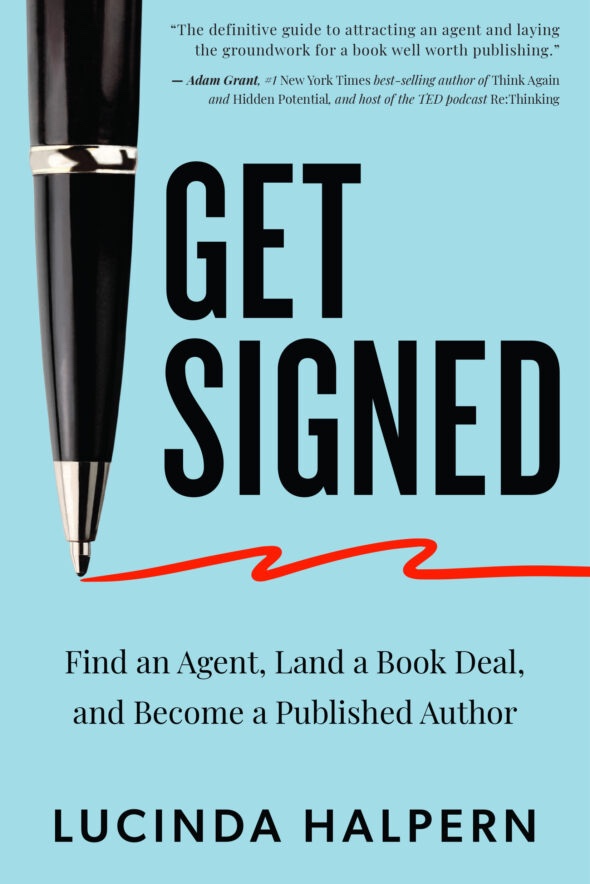Search
How to Get Paid For Speaking
 For many authors, speaking can be a key avenue to selling books as well as a lucrative side hustle. But a common misconception is that having a lecture agent is the only way to obtain paid speaking opportunities. We routinely receive queries from authors seeking lecture representation, but who might not yet be at the stage where a lecture agent is required. For those authors who love public speaking, believe they have a unique and insightful talk to offer, and wish to learn how to better navigate the speaking world, we hope these insights we’ve learned in the trenches will help. You will most likely be aware that there is already an abundance of public speaking professionals out there, such as the motivational Christian speaker, so maybe it would be wise to see how they hone their public speaking craft.
For many authors, speaking can be a key avenue to selling books as well as a lucrative side hustle. But a common misconception is that having a lecture agent is the only way to obtain paid speaking opportunities. We routinely receive queries from authors seeking lecture representation, but who might not yet be at the stage where a lecture agent is required. For those authors who love public speaking, believe they have a unique and insightful talk to offer, and wish to learn how to better navigate the speaking world, we hope these insights we’ve learned in the trenches will help. You will most likely be aware that there is already an abundance of public speaking professionals out there, such as the motivational Christian speaker, so maybe it would be wise to see how they hone their public speaking craft.
To get booked as a speaker or to acquire representation, first consider the kinds of criteria of questions event bookers and lecture agents will look for:
- Do you have a professional-looking website, bio, video, or speaking reel that demonstrates your abilities as a speaker and the kind of audience you speak to?
- Are you currently receiving invitations to speak, and if so, what is your quoted fee?
- What communities are you connected in (e.g. business, academic, nonprofit, social, digital)? How recognized, present, or active (via social media) are you in these communities?
- What kind of press attention have you and/or your book received?
If you have positive responses to all four questions, excellent! You are well-positioned to seek lecture representation. But if you’re still building these tools, you may find more immediate gratification in developing your own speaking platform than seeking an agency to do it for you.
Here are a few best practices we recommend for getting paid lecture gigs entirely on your own:
Develop carefully curated speaking topics based on your book or expertise. Look at how other author-speakers are positioning themselves—get a feel for the market. Make your speaking topics stand out as unique and/or perfectly tailored to the audiences to which you wish to speak. For instance, if you’re pitching corporations, what kind of employees would benefit from your talk? Why are you the right expert to give it? Brainstorm creative takeaways you can include in your talk. Your pitch should always focus on audience engagement and the key takeaways your audience will receive. Is your talk immersive—does it feature activities, workshop aspects, a quiz/assessment, signed books?
Recognize that exposure is king. Speaking gigs beget more speaking gigs (if you’ve performed well)! Seek opportunities that could have domino effect potential. Ask: will the event be broadcasted, well-promoted? Is the audience large, or small but influential? Will there be potential buyers in the room? Speaking for 30 people at a library could be wonderful for promoting your book but not do a thing to promote you as a speaker. Event bookers are less likely to find you at a library than at a major conference in your city, for example.
Engage your network. If you’re someone who keeps an email list or a spreadsheet of contacts (we suggest all authors do, in addition to LinkedIn!), you’ll be surprised to find just how many valuable connections you have. Can any of these connections bring about speaking opportunities? First approach those you know directly. Express your interest in speaking, ask politely for their consideration or assistance, enclose your “signature” talk or book topic, and include assets, like a video clip, speaking topics, organizations/conferences that have hosted you previously. If you have a warm connection to a corporation or nonprofit, you’re more likely to be ratcheted up to the right people booking events.
Seek the expertise of a speaking coach. You may think you’re a terrific public speaker, but even the best author-speakers typically have, or originally did have, a speaking coach. A professional coach can up your game, connect you with bookers in their network, and expand your range of opportunities. (Our authors rave about Terri Trespicio and Paula Rizzo of Lights Camera Expert.)
Invest in a professional video clip or reel. One of the first requests we receive from those interested in booking speakers is for video footage. Investing in a professional reel or minimally, having a compelling short video clip of a talk you’ve given, is an essential part of your speaking package. And make sure that footage captures a large, engaged audience! If you plan to make a career or part-time job of speaking, you might consider trying to get the attention of a local TedX.
Collect testimonials. This is self-explanatory. Especially if you’re offering your time for free, it’s hardly an imposition to request a testimonial! Feature these testimonials (with or without logos) on your website and wherever you are submitting yourself as a speaker.
Tap into the wider community of speakers. The author-speaker community is generally a collegial one. Those you connect with, more often than not, are open to sharing advice or even leads—new opportunities they can point you toward. Depending on how close you are or how generous the person from whom you’re receiving advice, perhaps your speaker acquaintance will offer a personal referral.
While speaking is a competitive industry, the market need for speakers remains vibrant. Whether you have a lecture agent or not, an author must be the first and strongest champion of his or her speaking career. We’d love to hear how you’ve put these tips (or others) into practice!








